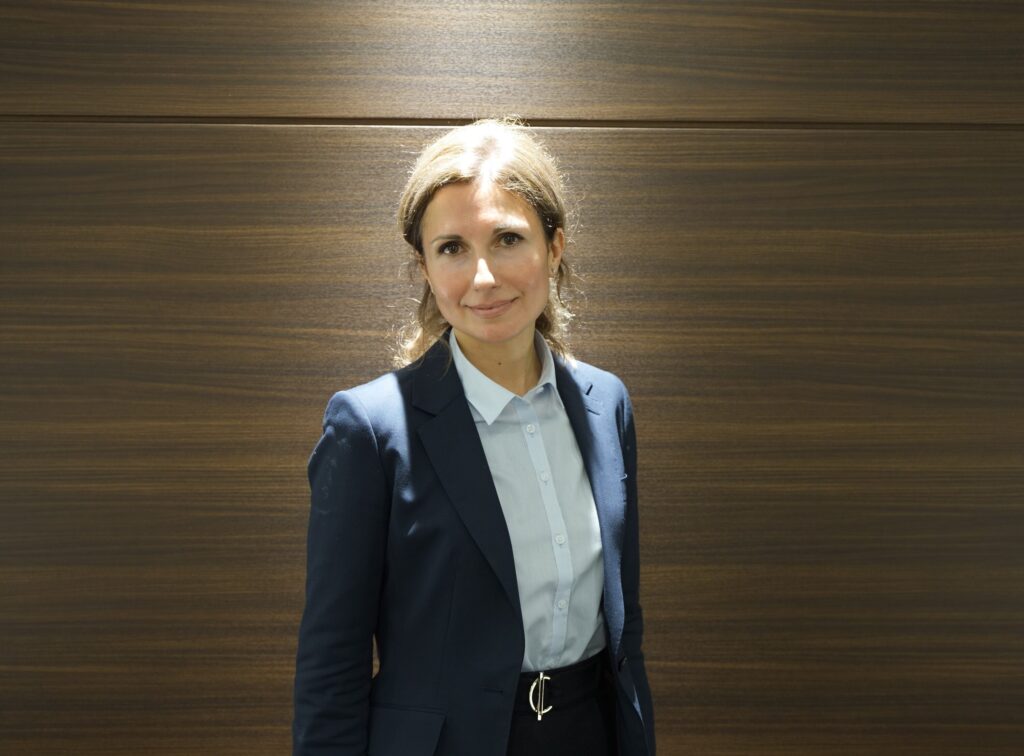
情熱から職業へ :ノン・ネイティブ英語教師としての旅ー(1/6)
ロシア出身のAllita先生。彼女の人柄に、講義終わりには学生に囲まれることもしばしば。そんな彼女は英語のみならず、ドイツ語、ラテン語、フランス語やスペイン語も学んだ経験があります。今回はAllita先生の英語に対する情熱を持つきっかけから英語教師となるまでのエッセイ、全6回の連載となります。是非皆さん最終回までお楽しみください。
From Passion to Profession: Embracing the Journey as a Non-Native English Teacher (1/6)
I discovered my love for languages when I was 12 years old. It all started with a small, seemingly insignificant moment—I turned on a radio and began to explore the different frequencies, catching snippets of various foreign broadcasts. One particular program caught my attention: the words sounded so foreign compared to my native language, Russian. This was around the time I had just begun learning English at school and had only memorized a handful of words. Yet, this unfamiliar program sparked something deep within me. It became a game—how could I express the same thoughts in a completely different language? It felt like unlocking a secret code, like a puzzle begging to be solved.
I remember that first experience vividly. Listening to the radio was like being a spy, piecing together a mystery. I would listen intently, catching the rhythm and intonation of the words, and trying to connect the familiar-sounding ones with those I had learned at school. My curiosity was insatiable; I wanted to crack the code and play this “spy game” where mastering a new language was the ultimate prize.
This initial spark of curiosity soon turned into a passion. I started watching American movies, becoming captivated by the vibrant lifestyles that contrasted sharply with those in the Soviet Union. I was fascinated by the way people spoke, how their homes looked, the food they ate, and the very essence of their lives, which seemed worlds apart from my own. For me, learning English was never just about grammar rules or vocabulary—it was about understanding and experiencing a new way of thinking and living.
My passion for languages grew stronger through my early interactions with teachers who brought the language to life. My first English tutor, who had worked in Vietnam, inspired me greatly. It amazed me that English could serve as a bridge for her to communicate with people from different cultures. Then there was another teacher who was part of the Kalinka Society, which facilitated exchanges between our town and a sister city in the United States. We often hosted American delegations of teachers and students, and these interactions fueled my desire to master English even more.
From then on, I delved deeper into language learning, picking up German and Latin, and later Spanish and French. I remember the thrill of making German friends and chatting with them on the phone—every call was an event, a small victory in my language-learning journey. My obsession with mastering English grew; I would spend hours doing grammar exercises, practicing my pronunciation, and trying to emulate native speakers. After all, a good “spy” should be able to conceal their true identity, including any trace of an accent! This playful challenge became the foundation of a lifelong passion for English.
But how does one transform such a passion into a profession as a non-native English teacher? The journey is not without its challenges. It requires persistence, dedication, and a unique blend of skills that go beyond merely being proficient in the language. Non-native English teachers often face misconceptions and biases, which can make the path seem daunting. But these obstacles also present an opportunity to redefine what it means to be an effective teacher. In this article, I want to share my experience and insights into what I believe it takes to become a successful non-native English teacher, and how we can turn our unique backgrounds into a source of strength and inspiration for our students.
情熱から職業へ:ノン・ネイティブ英語教師としての旅
私は12歳のときに言語への愛に目覚めました。それは一見取るに足らない小さな瞬間から始まりました。ラジオをつけ、さまざまな周波数を探り始め、いくつかの外国放送の断片をキャッチしたのです。特に気になった番組は、私の母語であるロシア語とは非常に異なる響きを持っていました。その頃の私は、ちょうど学校で英語を学び始めたばかりで、ほんの少しの単語しか覚えていませんでしたが、この聴きなれない番組が私の内なる何かを刺激したのです。それはまるでゲームのようでした。どうやったら同じ考えをまったく違う言語で表現できるだろうか?それは秘密の暗号を解くような、まさに「君なら解けるよ、頑張って」とささやくパズルを解くような感覚でした。
あの時の興奮は今でも鮮明に覚えています。ラジオを聴いていると、まるでスパイになって謎を解き明かしているようでした。言葉のリズムやイントネーションを注意深く聴きとり、聴き覚えのある単語を学校で学んだものと結びつけようと必死になっていました。好奇心は尽きることなく、暗号を解読して、新しい言語をマスターすることで最強の称号を得ることができる、「スパイゲーム」をプレイしたかったのです。
この好奇心の火花は、すぐに情熱へと燃え上がりました。アメリカの映画を見るようになり、ソビエト連邦とは全く異なる、活気あふれた生活スタイルに魅了されたのです。人々の話し方、家の様子、食べるもの、そして何よりも、彼らの生き方そのものが、私にとって全く新しい世界でした。英語を学ぶことは、単なる文法や単語の勉強ではなく、新しい考え方や生き方を理解し、体験することだったのです。
私は、言葉に命を吹き込むような素晴らしい先生方との出会いがきっかけで、言語への情熱を深めていきました。特に、ベトナムで働いていた最初の英語の家庭教師は、私に大きな影響を与えました。英語が、異なる文化を持つ人々をつなぐ架け橋になることに感動したのです。
また、私たちの街とアメリカの姉妹都市の交流を促進していたカリンカ・ソサエティの先生も忘れられません。よくアメリカからの教員や生徒の受け入れを主催していたのですが、こうした交流は、英語をもっとマスターしたいという私の願望に拍車をかけたのでした。
それ以来、私は語学学習に深く没頭し、ドイツ語とラテン語、そして後にスペイン語とフランス語を学びました。ドイツ人の友だちができ、電話でおしゃべりするときのわくわく感は忘れられません。電話の度に、言語学習の道のりにおける小さな達成感を得ることができたのです。英語を習得したいという熱意はどんどん高まり、文法の練習や発音の練習に何時間も費やし、ネイティブ・スピーカーを真似したりしました。だって、優秀な「スパイ」なら、アクセントを含め、自分の本当の身元を隠せなければいけませんからね!この遊び心のある挑戦が、英語への生涯にわたる情熱の基礎となったのです。
しかし、そんな情熱を、英語を母国語としない英語教師という職業にどう活かしていけるのでしょうか?粘り強さや献身的な姿勢はもちろん、単なる語学力だけでは成しえない特別な能力が求められます。ノン・ネイティブの英語教師は、しばしば誤解や偏見に直面し、その道のりは困難に見えるかもしれません。しかし、この困難は、より良い教師像を再考する絶好の機会でもあります。
ノン・ネイティブの英語教師として成功するためには何が必要なのか、また、どのようにすれば私たちのユニークな経歴を生徒たちの力とインスピレーションの源に変えることができるのか、私の経験と洞察をみなさんと分かち合いたいと思います。
ELEC英語講師陣 紹介ページはこちら
